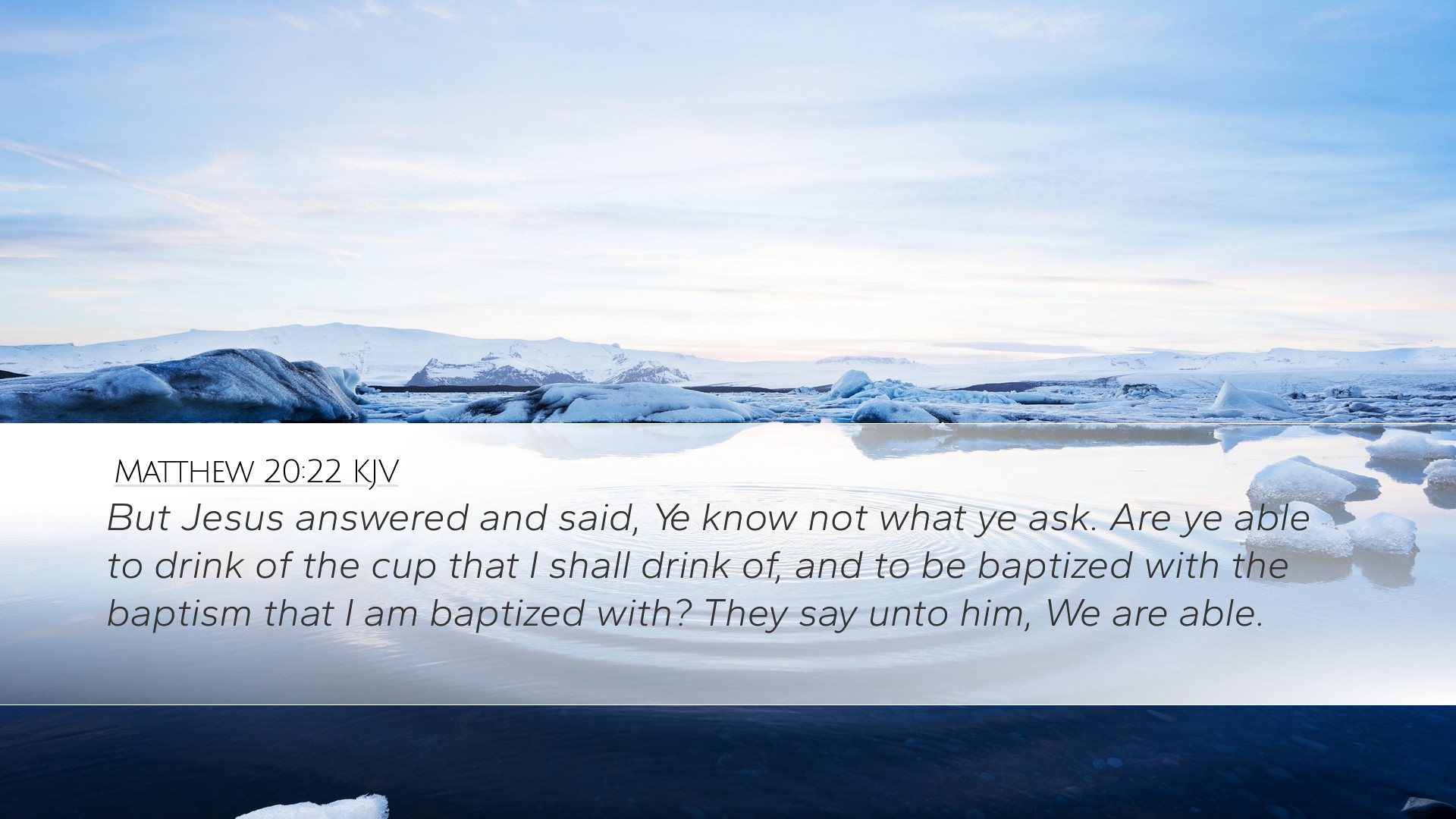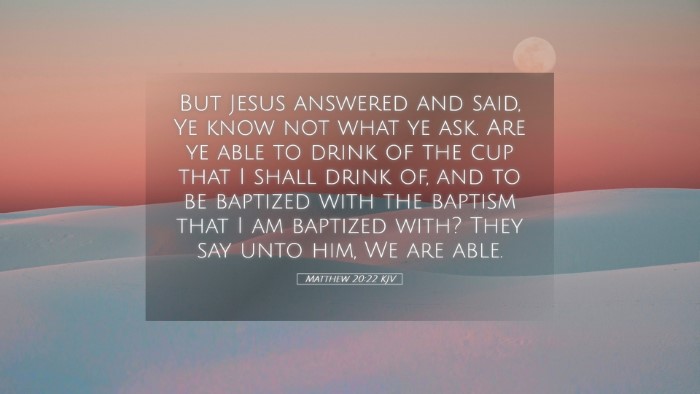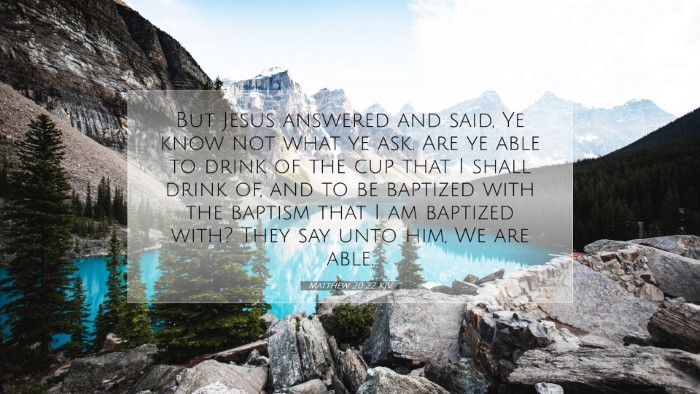Commentary on Matthew 20:22
Matthew 20:22 states: "But Jesus answered and said, 'You do not know what you ask. Are you able to drink the cup that I am about to drink, and be baptized with the baptism that I am baptized with?'" This verse captures a pivotal moment in the ministry of Jesus, highlighting themes of suffering, sacrifice, and discipleship.
Contextual Background
This passage occurs in the context of Jesus preparing His disciples for the coming events of His death and resurrection. Just prior to this verse, the mother of James and John requests places of honor for her sons in Jesus’ kingdom. This request sets the stage for Jesus’ profound teaching about the nature of authority and suffering in His kingdom.
Interpretation
In this interaction, we observe the profound depth of Jesus’ response. His inquiry into their ability to "drink the cup" or undergo the "baptism" He would face brings to light several critical theological and practical considerations.
Understanding "the Cup"
The term "the cup" refers to the suffering and sacrifice that Jesus was about to endure on the cross. Matthew Henry notes that the reference to "the cup" signifies a portion of suffering that is appointed or given by God. It symbolizes not only the agony of the crucifixion but the entire weight of the sin of humanity that Jesus would bear.
Baptism: A Symbol of Identity
The "baptism" mentioned here also holds significant meaning. Adam Clarke explains that baptism, in this context, refers to the overwhelming nature of Jesus’ upcoming trials and tribulations. It symbolizes a complete immersion into suffering, aligning the disciples’ identity with that of Christ. This verse invites the reader to reflect on the implications of following Jesus, which may include profound suffering and sacrifice.
The Disciples' Response
When faced with Jesus' question, the disciples boldly claim, "We are able." Their response, however, illustrates a lack of understanding of what true discipleship entails. Albert Barnes emphasizes that their confidence demonstrates the often naïve enthusiasm of believers, who may not fully realize the cost of following Christ. This moment serves as a reminder of the need for spiritual maturity and discernment in the faith journey.
Theological Implications
This verse opens up several crucial theological concepts worthy of exploration:
- Suffering as a Pathway to Glory: The invitation to share in Christ's suffering is also an invitation to share in His glory. As Paul articulates in Philippians 3:10—a fellowship in His sufferings leads to a deeper knowledge of Christ.
- The Nature of Discipleship: True discipleship demands a willingness to embrace the cross (Matthew 16:24). Jesus’ question sets a sober tone for what it means to follow Him.
- God's Sovereignty in Suffering: Reflecting on this moment reveals the sovereignty of God even amidst suffering. His call to drink the cup highlights that suffering is not merely an obstacle but a divine appointment.
Practical Applications
For pastors, students, and scholars, this verse invites reflection on several practical aspects of discipleship:
- Prepare to Suffer: Disciples must expect challenges and hardships as part of their faith journey. Understanding the cost of discipleship prepares believers for trials.
- Evaluate Motivations: Just as the disciples were prompted to consider their motivations for seeking positions of honor, modern believers are encouraged to seek humility and servitude over grandeur.
- Press into Christ's Sufferings: Engaging with Christ’s suffering through prayer, scripture, and community aids in spiritual formation and deepens one’s faith.
Conclusion
Matthew 20:22 is rich with implications for understanding the life of a believer. Jesus’ questions open the door to profound truths about suffering, identity, and the seriousness of discipleship. Encouraging self-examination and reflection, this verse serves as an invitation to deeper communion with Christ, both in His sufferings and in His eventual glory.


